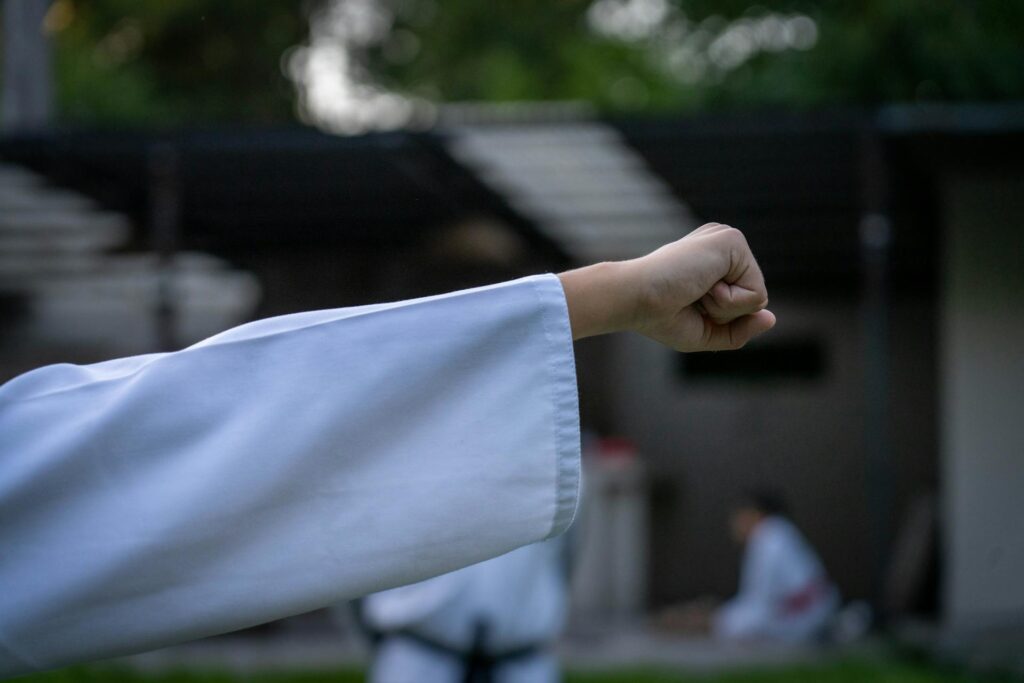It’s not only firearms and blades that are classified as prohibited weapons in Canada. Batons are among several other types of weapons that are prohibited under the Criminal Code.
This means that it is illegal to carry a baton even for use in self-defence in Canada, a law that can catch some people by surprise and cause serious legal issues.

Let’s take a closer look at the relevant laws on batons and other prohibited weapons. We also consider what to do if you are caught in possession of a baton and some possible legal alternatives to carrying a baton to defend yourself in Alberta…
What is a Baton?
A baton may be known as a “Kyoga baton” or “Steel Cobra”. They are banned weapons under section 91(2) of the Criminal Code.
Typically, this type of weapon takes the form of an expandable/retractable weapon made from plastic, metal or carbon fibres, and often associated with law enforcement and self-defence. They may be spring-loaded, as with a Kyoka baton.
Batons are well-known for allowing versatility in a variety of threatening situations, while offering compact storage and quick deployment, which is why police officers in Canada carry collapsible batons as part of their standard equipment.
The Criminal Code and prohibited weapons
The Criminal Code deals with the unauthorized possession of prohibited weapons, restricted weapons, prohibited devices, and prohibited ammunition.
Expandable batons and similar devices fall specifically into the prohibited weapons category. This means that the possession, importation or sale of such items can result in criminal charges.
What is the penalty for possessing a baton?
An individual found in possession of a baton can be charged with a summary offence or by indictment. It is a “hybrid” offence, and the decision on how to proceed is made by the Crown prosecutor, usually depending on the severity of the alleged offence.
For summary offences, the police can arrest suspects without a warrant and defendants are tried in provincial court without a jury. A conviction can result in:
- Up to two years less one day imprisonment, and/or
- A fine of up to $5,000.
An indictable offence is more serious and will generally be heard in a superior court, often with a trial by judge and jury. An indictable conviction for baton possession can lead to a prison term of up to five years.
Beyond these initial penalties for a person convicted of baton possession, the individual must also live with the longer-term consequences of a criminal record. This brings its own set of potential issues. For instance, criminal record background checks can prevent certain types of employment or create issues with education or housing. Immigration status may be affected and travel issues may arise.
Exceptions to the baton rule for law enforcement
There are notable exceptions to the possession laws on batons in Canada. Although the general public is prohibited from carrying these weapons, police officers and certain security professionals may be authorized to do so.
To be more explicit, only the following individuals may be permitted to carry batons:
- Police officers (expandable or straight batons) as part of their standard equipment.
- Certain peace officers, such as sheriffs, corrections officers, and some specialized enforcement officers designated under law.
- Licensed/authorized security professionals (in rare and tightly regulated cases).
- Military/RCMP in authorized roles when acting in a specific official capacity.
Note that most private security guards in Canada are subject to the general prohibition on batons.
Can batons be used in self-defence?
Batons are illegal for the general public in Canada, irrespective of intent. So, they cannot be legally used in self-defence and you cannot carry a baton “just in case”.
Under Canadian law, the use of reasonable force in self-defence is recognized and it can be a valid defence in assault cases—but not if you defend yourself with a prohibited weapon, like a baton.
So, even if you are not charged with assault, you could be charged with a criminal offence if you carry or use a baton to defend yourself in an assault case.
Are there legal alternatives to carrying a baton in Alberta?
Rather than carrying an illegal weapon, consider one of these legal alternatives if you feel threatened by a situation and want to prepare yourself for self-defence:
- Personal alarms and flashlights act as deterrents to attackers/intruders.
- Bear spray is allowed for use against animals in wilderness areas.
- Keys, pens, and umbrellas can be legally used in self-defence.
Also, you might like to try martial arts, self-defence training, and practice general situation awareness and safety planning.
Remember, other prohibited or restricted non-firearm weapons include brass knuckles, mace or pepper spray, switchblades, stun guns/tasers, spiked wristbands, crossbows, nunchucks, and more.
What to do if you’re charged with a prohibited weapons offence
The federal prohibited weapons laws are applied strictly in Alberta and across Canada. If you are arrested and charged with a prohibited weapons offence, it is essential to seek legal assistance and advice as soon as possible.
A seasoned criminal defence lawyer can help you navigate the criminal justice system in Alberta, protect your rights, and reduce the consequences you face for the future.
Call us to arrange a confidential consultation
To speak with Cory Wilson or arrange a free, no-obligation consultation with Wilson Criminal Defence, call 403-978-6052 or email us here.
